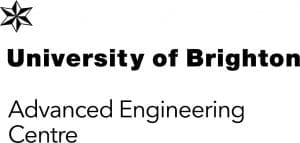Recently three researchers from the Advanced Engineering Centre had the opportunity to present their work at the 11th International Conference on Multiphase Flow (ICMF). Taking place every 3 years, this is one of the key meetings of researchers working in this field, and its scope encompasses a diverse array of fundamental and applied topics in fluid mechanics. This edition was held in Kobe, Japan, and hosted by an esteemed group of universities which were responsible for instigating ICMF 30 years ago. As a highlight conference, it offers an ideal outlet to showcase the findings of projects to the community, and the contingent from Brighton were able to present work from different areas within the AEC’s remit.
Dr Anastasios Georgoulas gave a numerically focused talk on a body of work dealing with the assessment of computational fluid dynamics solvers for dealing with cavitation, particle re-suspension and oil-water separation processes, with these effects being relevant in the context of oily-sludge treatment applications. The research demonstrates that the numerical solvers available within the open source OpenFOAM package are capable of accurately predicting the fundamental fluidic processes, and are therefore applicable for optimisation of oily-sludge treatment systems. This work was done in collaboration with Liverpool John Moores University, and was funded by InnovateUK as part of the project Reducing Maritime Emissions.
Dr Mirko Gallo presented his work on boiling, with the focus being on the modelling of this phenomenon using a capillary fluctuating hydrodynamics description. The work showcases how a consistent representation of the boiling process can be obtained in its entirety from bubble nucleation at the atomistic level through to large-scale bubble motion. This research was done in collaboration with Sapienza Universita de Roma, and was funded by the Leverhulme Trust under the project Advanced Multiscale Stochastic Simulations of Phase Transition.
Dr Chris Stafford gave a presentation on the modelling of particle-laden flows, highlighting how the fully Lagrangian approach can be used to describe interphase coupling effects in sprays. The research outlines how a continuum-based description can be combined with statistical learning methods to calculate the mass and momentum transfer between particles and the background fluid flow, and illustrates the implementation of this framework into the open source computational fluid dynamics software OpenFOAM. This work falls under the remit of the Next Generation Spray Simulation Model, and is funded by UKRI through the Future Leaders Fellowship of Dr Oyuna Rybdylova.
Of course, being in Japan also presented the chance to savour the culture and heritage of the country, with an abundance of different attractions, events and cuisine to experience. The conference banquet was accompanied by a traditional Japanese music performance, while elsewhere there was ample opportunity for widening one’s culinary palette.

The conference was rounded out with an excursion to Himeji Castle, whilst there was also the time to visit the nearby Kobe Herb Gardens and breathtaking Nunobiki falls. The delay of the conference from 2022 in order to hold an in-person event meant that the meeting was perfectly aligned with the blooming season for Japanese cherry blossom, providing a delightful backdrop both within the city and further afield.

The researchers are grateful to have had the chance to attend ICMF, and wish to acknowledge the funding bodies for enabling the various projects which made this possible.






Leave a Reply